Affiliate links on Android Authority may earn us a commission. Learn more.
OnePlus Nord 2 second opinion: Struggling to stand out
Published onJuly 25, 2021
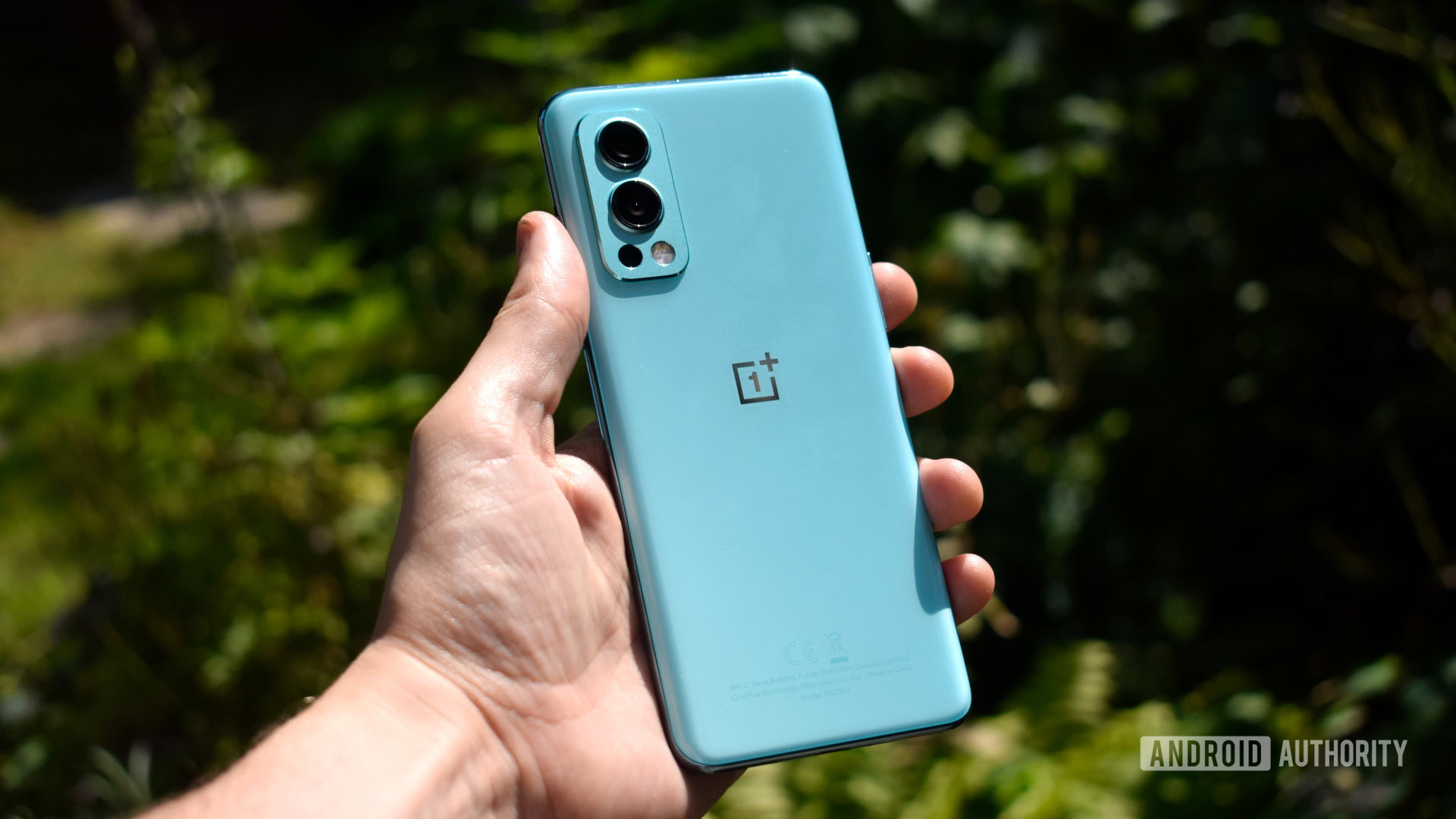
The OnePlus Nord was the company’s first foray into the mid-range market. After several rather underwhelming follow-up attempts at the budget end of the market, the company is back with the mid-range OnePlus Nord 2. However, the market for affordable smartphones is more competitive than ever. The Nord 2 has its work cut out if it’s to stand out.
I definitely agree with our initial review of the phone, which you can find below, but have some additional avenues I want to explore. So let’s get into Android Authority’s OnePlus Nord 2 review second opinion.
Our verdict: OnePlus Nord 2 review — Powerful hardware, ailing imaging
Spot the difference
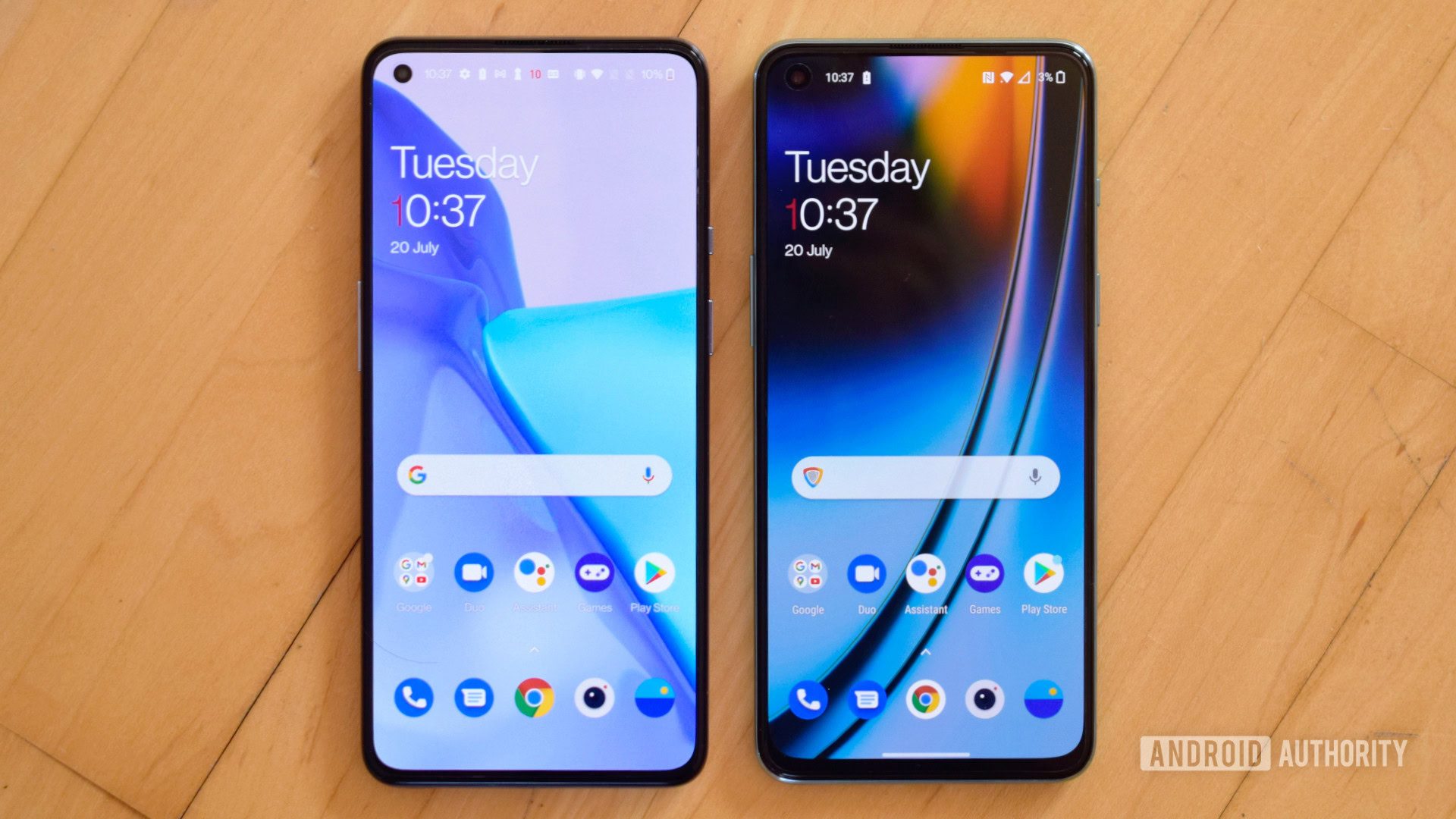
10 points if you correctly guessed that the OnePlus 9 is on the left and the OnePlus Nord 2 on the right. The budget model seamlessly slots into OnePlus’ 2021 line-up, sporting a virtually identical design that you’d be hard-pressed to tell apart from the OnePlus 9 and 9 Pro at a casual glance. A budget phone with the looks of a more premium model is just fine by me. The Nord 2 does have a slightly unsightly larger chin than its siblings. That’s the giveaway next time you’re asked to spot the difference.
The affordable handset feels the same in the hand as the OnePlus 9, right down to the curved edges and plasticky-feeling shell. I’m not the biggest fan of the way the phone looks and feels — it’s a bit generic, but it gets the job done and certainly isn’t an ugly design. The Nord 2 also includes OnePlus’ signature alert slider, a feature missing from some of the more affordable phones in the Nord series. The in-display fingerprint reader is another feature you’ll find borrowed directly from the more expensive OnePlus 9.
The Nord 2 certainly looks the part of a flagship OnePlus phone and ticks most of the boxes too.
Your color options are limited to Gray Sierra, Blue Haze (pictured), and Green Wood. It’s missing some of the swankier colors and matte finishes on offer with OnePlus’ more expensive phones. I would have liked OnePlus to expand the available colorways, or at least offer black and white options.
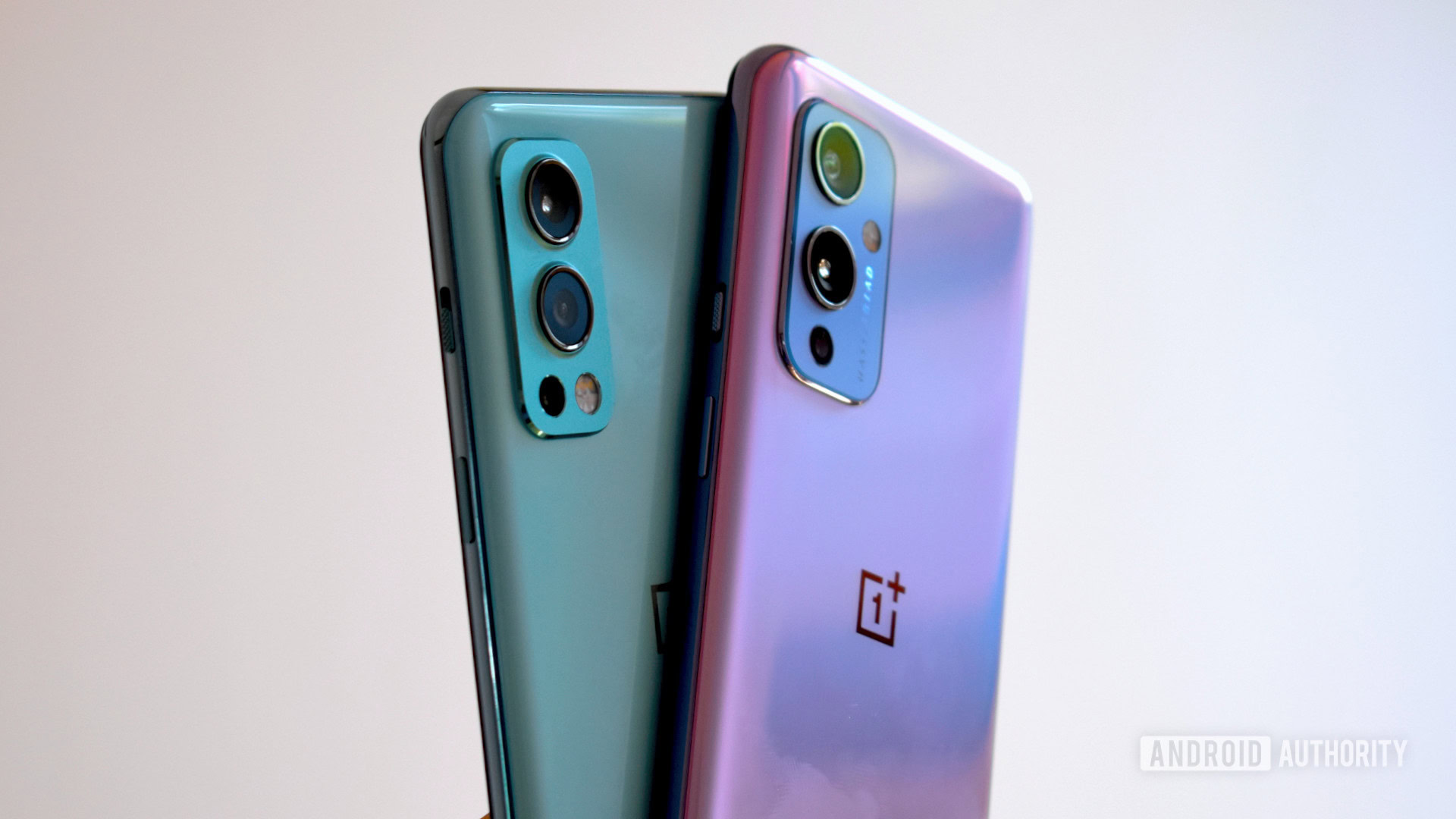
There are other subtle giveaways that this is the cheaper phone in the 2021 release schedule. For starters, there’s no Hasselblad branding on the camera housing. That has knock-on effects for camera quality, which we’ll discuss more later on.
One of the more obvious downgrades on paper, but much more subtle in reality, is the 90Hz rather than 120Hz display. Although the adaptive 90Hz refresh rate is still adequately smooth for scrolling through web pages, you will find rival phones offering higher refresh rates. Speaking of the display, it looks a little too dark in some films. Colors appear decent to my eye, but the contrast or gamma is a fraction off. Oddly, the phone’s speaker setup sounds a little lopsided as only the top-most speaker is forward-facing — although it’s actually the bottom one that sounds slightly louder to my ear, which is a bit off-putting when watching movies.
The OnePlus Nord 2 certainly looks the part but there are a few compromises hidden away beneath the flagship-looking exterior. Still, that’s to be somewhat expected of a mid-range phone, and the Nord 2 ticks a lot of the key OnePlus experience boxes at an affordable price point.
Pretty much everything you want from a phone?

OnePlus dropped the “pretty much” from its slogan this year, claiming that the Nord 2 offers “everything you could ask for” in an affordable smartphone package. With an improved camera sensor, bigger battery, Gorilla Glass 5 protection, and super-fast 65W charging onboard, OnePlus has clearly improved on last year’s formula. Combined with a smooth 90Hz AMOLED display, Android 11 out of the box, and plenty of storage, it’s hard to argue that the Nord 2 fails to offer a well-rounded package for a mid-range price.
The 65W charger bundled in the box takes the phone from empty to full in just 31 minutes, which is as fast as the company’s flagship smartphones. It’ll also charge at 18W via USB Power Delivery. The 90Hz display is snappy and smooth for browsing and looks great when gaming. But the real speed boost with the Nord 2 comes from the new MediaTek Dimensity 1200 AI processor.
The 90Hz display, super-fast charging, 5G, and solid all-day performance has most daily use cases covered.
I was told by a OnePlus representative that the MediaTek Dimensity 1200 AI processor is close to the Snapdragon 870 in terms of performance, which is basically the same chip as last year’s flagship Snapdragon 865 Plus. The benchmarks would disagree, although not by as much as you might think.
First, I ran the OnePlus Nord 2 in default performance mode through a selection of tests to get a closer look at the chip. The CPU scores just behind 2020’s Snapdragon 865 in single-core performance, although multi-core is a bit further off the pace. The graphics performance is more mixed, clocking in around Samsung’s controversial Exynos 990, which we might expect from the similar Mali-G77 MP9 versus MP11 layout. That said, Call of Duty frame rates hold up just fine and gaming is as smooth as you like.
Overall out-of-the-box performance is probably closer to 2019’s Snapdragon 855 than the 870. Still, that’s a notable uplift in performance from the original Nord’s Snapdragon 765G and more power than you’ll find in a lot of other mid-range smartphones. The OnePlus Nord 2 is a solid performer for all your apps, and it’s a decent gamer as well.
I also tested the phone with the Nord 2’s high-performance mode enabled, which provides a major 15-20% boost to GPU performance and a 9-12% bump to CPU multi-core performance. That moves the phone closer to Snapdragon 865 territory, although not quite as far as the 865 Plus or 870. However, the phone becomes very, very hot when running games with this mode enabled. Battery life takes a notable hit in demanding situations too. You certainly don’t need to enable this mode for web browsing and the like, as the phone is fast enough already. I’d recommend leaving this disabled to prolong the battery life.
Features versus battery life
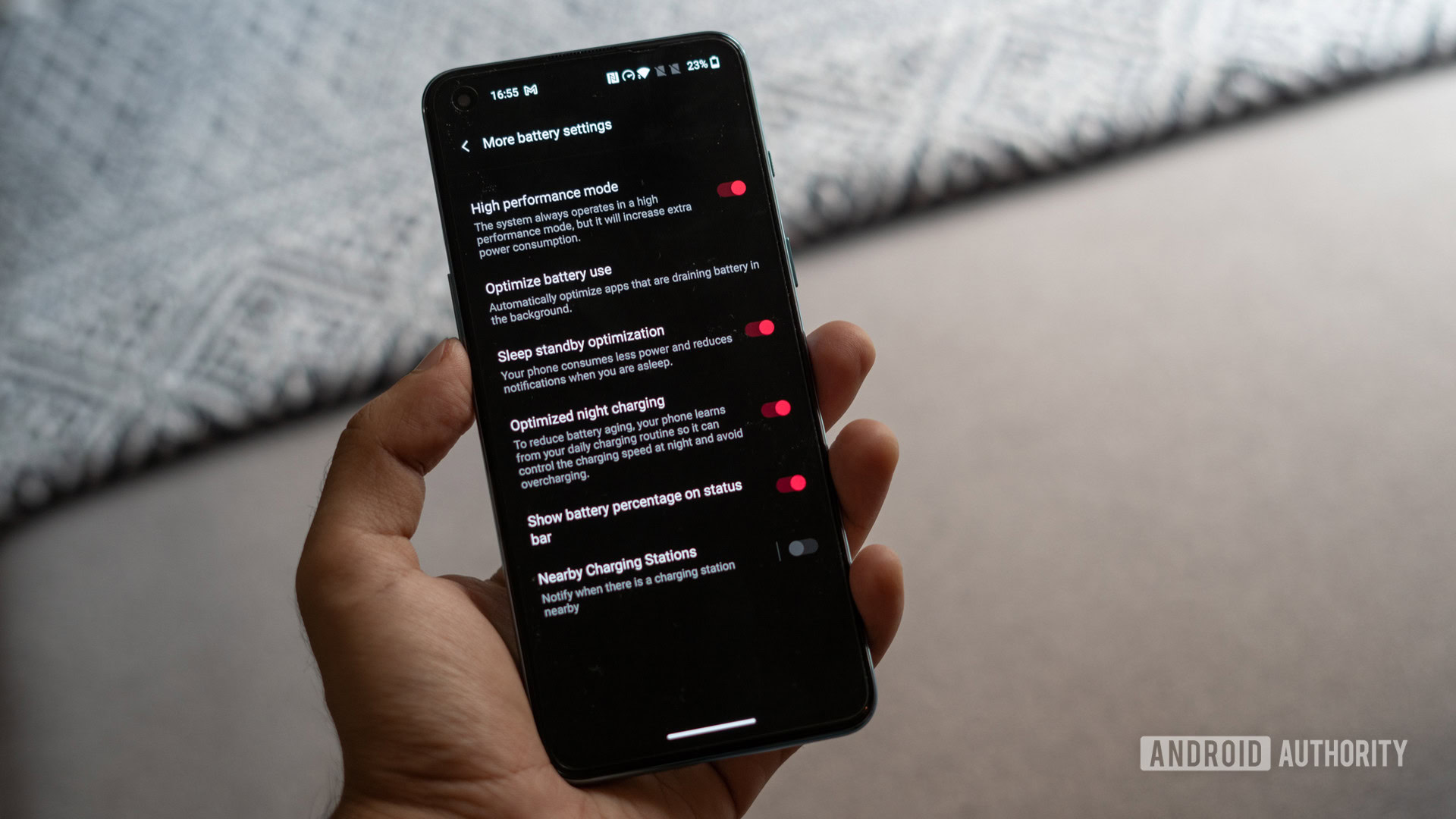
Speaking of battery life, the phone is generally very good. With web browsing, social media, and even some light gaming workloads it easily lasts a full day and possibly into a second. I clocked six to eight hours of screen-on time. Heavy gaming sessions will drain the battery in about four hours, which is not too bad but not amazing either. Turn on high-performance mode and, as mentioned earlier, the battery will run out much faster.
The phone’s AI image and video enhancement options will drain extra juice too. These features use AI to upscale video content and boost image saturation and brightness to improve their appearance, but the two toggles are disabled by default. Out of the box, you’re missing out on the maximum potential of MediaTek’s chip, and the AI collaboration between the two companies is a little undercooked.
The Nord 2 offers a major performance boost over the Nord, but maximizing the chip's potential drains the battery too fast.
So does the OnePlus Nord 2 provide absolutely everything you need? Well, it’s missing a headphone jack (a common feature at this price), although it does support AptX, AptX HD, LDAC, and AAC Bluetooth codecs. There’s no IP rating whatsoever, no HDR gaming support, and no wireless charging here either. Even so, the decent-looking 90Hz display, super-fast charging, 5G networking, and solid all-day performance will have most people’s daily use cases completely covered.
What’s perhaps more questionable are the options that OnePlus touts and then disables. The phone is clearly riding the limits of its battery life and dials back on some features as a result. More demanding gamers and multimedia enthusiasts may find that the phone doesn’t quite offer everything they’d want.
Cameras: Starting from scratch, again!
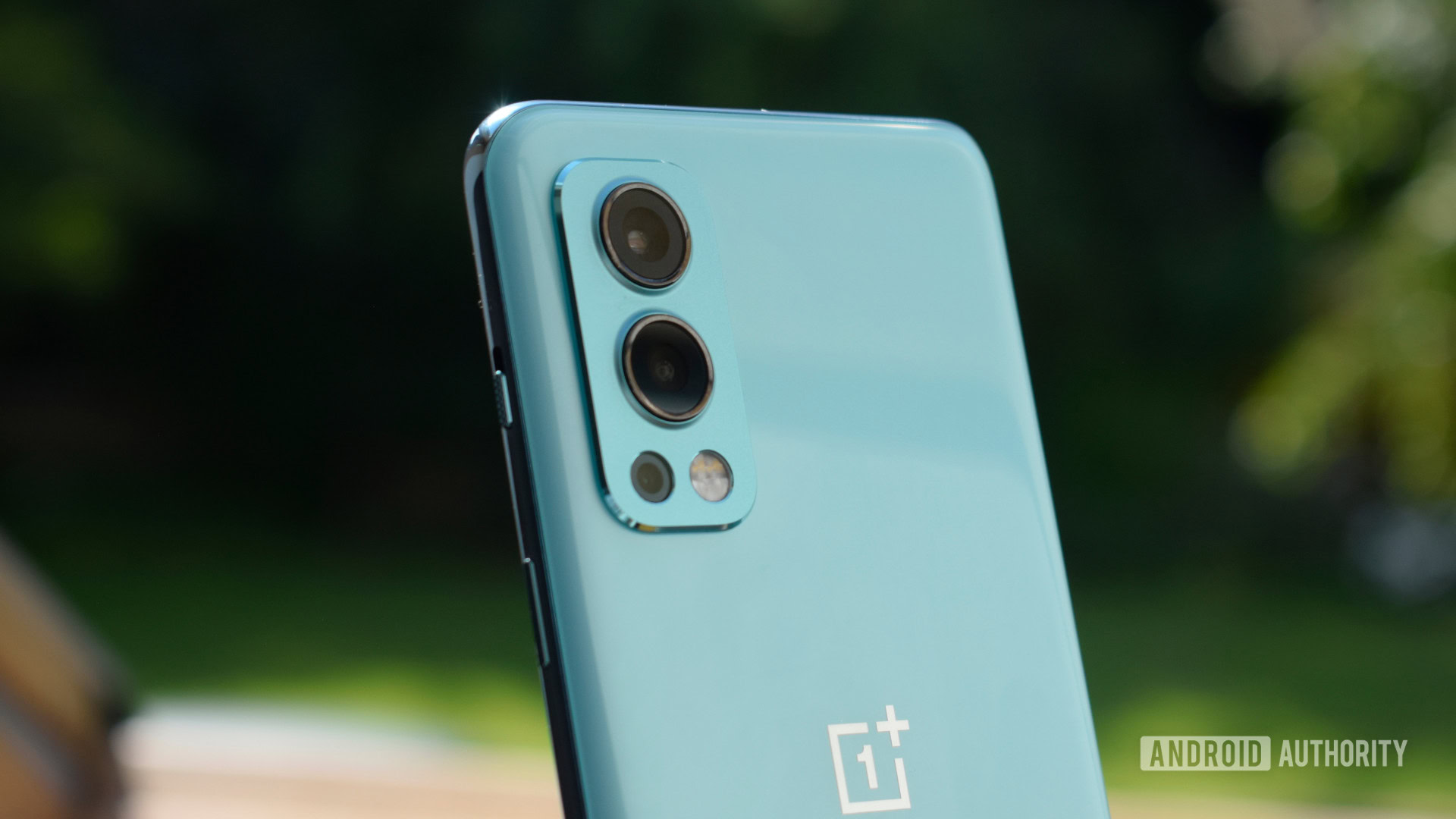
If there’s one thing you can guarantee about every OnePlus release, it’s that the cameras will underwhelm at launch and there’ll be some vague promise about patches to improve quality. The OnePlus Nord 2 is no different. Despite boasting the same 50MP IMX766 sensor found in the OnePlus 9’s decent wide-angle camera, the results definitely don’t live up to the quality of its more expensive sibling.
Generally speaking, the camera’s white balance is good outdoors but more hit-and-miss indoors. OnePlus hasn’t managed to match the color profile or exposure when moving between the main and wide cameras. The 50MP main camera takes 12.5MP snaps by default and captures a decent amount of detail, albeit with too much sharpening applied. The 8MP wide-angle camera is poor by virtually all standards, particularly when it comes to detail capture.
The first major problem I have with the Nord 2’s camera is oversaturation. Greens and blues in particular are pumped up to ludicrously unrealistic levels. The HDR effect, while powerful and quite effective most of the time, ends up adding an unnecessary amount of bloom and edge smudging, as does engaging the AI enhancement toggle. The second problem is a lack of dynamic range, which results in some pictures looking underexposed with clipped highlights and crushed details in the shadows. Then there’s the image clean-up, which relies far too heavily on sharpening to extract details. The results are messy even without close inspection, particularly when pushing the phone out to 3x zoom and beyond.
There are always compromises at lower price points and the OnePlus Nord 2 can deliver some reasonable photos. But compared to other phones on the market the imperfections are obvious. The camera’s saving grace is that it performs quite well in low light. Combined with OnePlus’ powerful night mode, the phone can capture some decent snaps when the lights go down, although you can often spot noise and banding from the lack of dynamic range.
Without Hassleblad, the OnePlus Nord 2 camera's color processing is back to being bad.
I’ve taken some comparison shots with the slightly more expensive OnePlus 9 below. I think the results speak for themselves. The Nord 2 is clearly a backward step for the company’s photography processing capabilities.
The Nord 2’s camera package is partially redeemed by the selfie camera. The camera captures decent details in good lighting. Images look a bit softer indoors and in lower lighting, although it still holds up quite well thanks to the larger sensor. The front-facing camera also offers reasonable edge detection for portraits, but again the camera struggles with strong highlights and often clips due to its limited dynamic range.
Frustratingly, it looks like OnePlus discarded all the good work that went into its flagship cameras and started from scratch once more for the Nord 2. This isn’t to say that every photo looks bad but, thanks to the processing, results vary widely. You can view these and other full-resolution pictures in this Google Drive folder.
Software controversy?
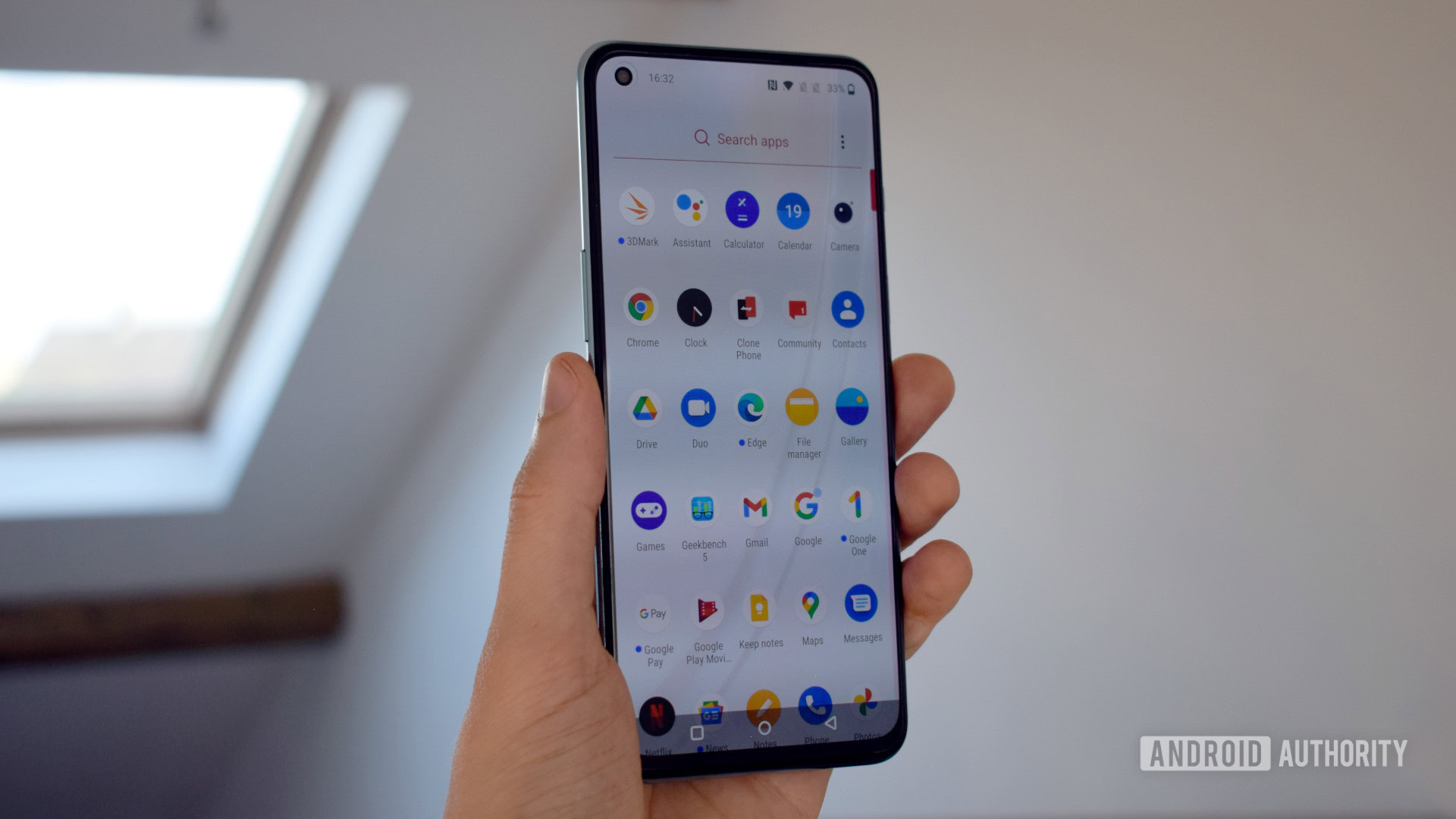
The OnePlus Nord 2 runs the somewhat contentious Oxygen OS 11.3 software. I find Oxygen OS 11 perfectly serviceable, striking the right balance of useful features without feeling bloated. It’s definitely a departure from the stock-like approach of previous years, but the skin looks appealing and is hugely customizable, Zen Mode is as good as ever, and OnePlus’ apps all do everything you’d expect of them.
But OnePlus’ closer partnership with OPPO has raised further eyebrows about the future direction of the software. OnePlus previously confirmed to Android Authority that the Oxygen OS skin would continue to be used for global devices, although that doesn’t rule out Color OS and Oxygen OS becoming increasingly similar in the near future. A few features from Color OS have already made their way into Oxygen OS, such as the camera apps and settings. This is definitely something to consider regarding future updates, as we can’t be entirely sure just how close the phones from these two companies will become.
OnePlus improves its update promise for the Nord 2, but it's far from the best in the business.
With regards to updates, the Nord 2 will receive two major Android updates and three years of security updates. That’s fairly standard and obviously better than the single upgrade provided to the OnePlus Nord N10 and N100. It still falls short of OnePlus’ flagship promise, though, as well as rivals Google and Samsung, the latter of which has promised four years of OS updates for all its post-2019 handsets, including mid-rangers. OnePlus isn’t quite keeping up with the competition here.
OnePlus and OPPO integration: Reasons to be nervous and excited
OnePlus Nord 2 review second opinion:
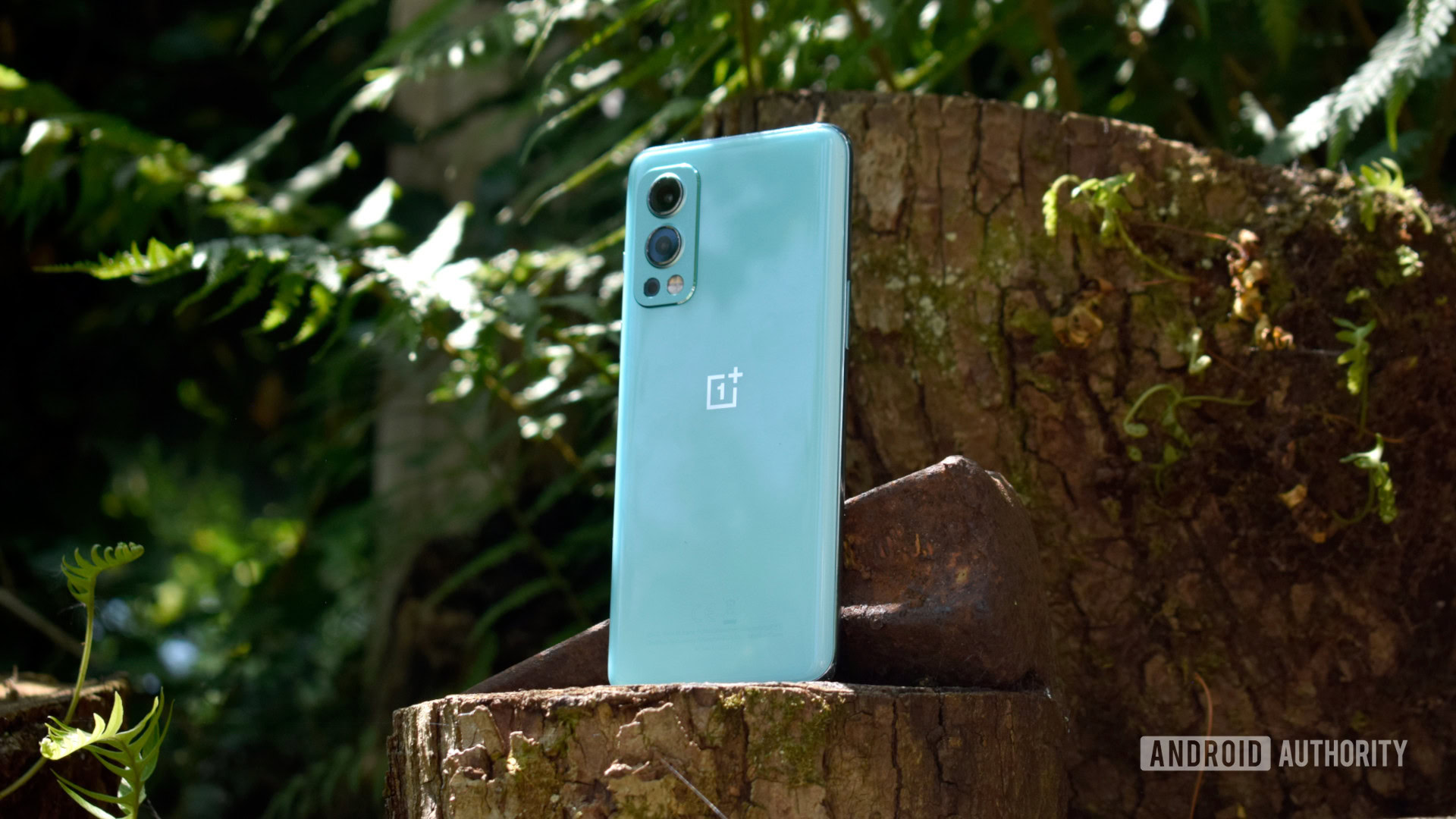
With even more bases covered than the previous generation, surely the OnePlus Nord 2 is a slam-dunk bargain handset — especially as the entry model starts at just £20 more than last year’s model, priced at £399/€419 for the 8GB/128GB model and £469/€519 for the 12GB/256GB variant? Well not quite. The phone has its share of flaws and doesn’t offer absolutely everything you’ll find on rival handsets.
For example, the Nord 2 lacks the wireless charging capabilities of the similarly priced iPhone SE ($400/£399/Rs. 28,400). Apple’s phone also has an IP67 rating that OnePlus can’t match. Similarly, the Samsung Galaxy A52 5G (£399) offers a microSD card slot for a cheaper storage upgrade and a 120Hz display for media lovers. Or there’s faster performance on offer from the likes of the Xiaomi POCO F3 (€349), and a better camera in the Pixel 4a (£349).
Nord 2 ticks the key OnePlus experience boxes at an affordable price point, but it's not the best budget buy.
The 12GB variant is particularly hard to justify in today’s market. £160 more nets you the OnePlus 9 and a lot more hardware, including wireless charging, a faster processor, and a better camera setup. The Samsung Galaxy S20 FE 5G can often be found for £500 or under, which again offers a fair bit more hardware and software longevity for your buck than the 12GB Nord 2.
In the end, the OnePlus Nord 2 ends up in a similar space to our verdict on the original Nord — distinctly average. It’s a fine all-rounder with a reasonable value proposition, but it’s not a game-changer for the mid-range market. The most noteworthy improvement is the phone’s near-flagship performance and, for some, that will be enough to tip the phone into buy territory. But given all the hype and marketing, the Nord 2 is ultimately rather underwhelming.
